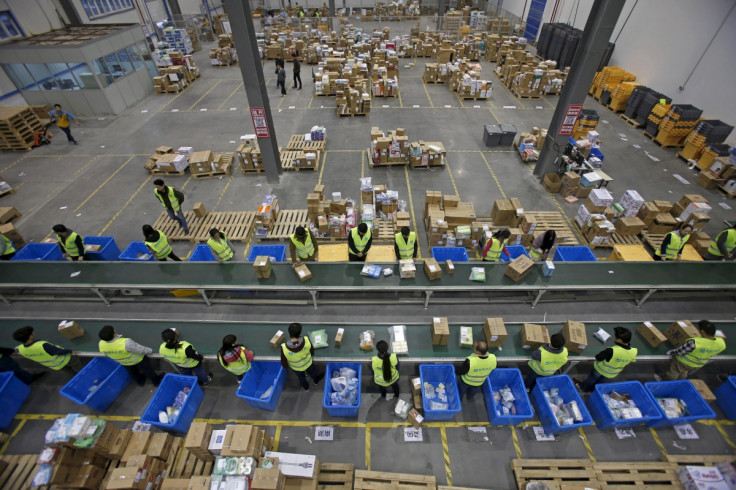Amazon, Tesco, Argos and other online retailers could be hit by shrinking warehouse space, LSH says

Online retailers such as Amazon, Tesco and Argos could be affected because of a dearth in distribution warehouse space, according to research by property consultancy, Lambert Smith Hampton (LSH). As these retailers use a network of warehouses to ensure faster delivery of goods to customers, the shortage of storage space will affect their delivery capabilities, LSH said.
The LSH report revealed that even with the ongoing construction of industrial spaces, the demand will exceed supply by 25 million sq ft by the end of the decade. LSH warned that "a significant and unprecedented increase" in the construction of warehouses is required to ensure prompt delivery of goods to online shoppers in the future.
While LSH advised the logistics industry to adapt quickly, its report indicated that the supply of industrial and logistics space fell from a peak of 360 million sq ft in 2012 to 200 million sq ft in 2015. Steve Williams, national head of industrial and logistics at LSH said: "E-commerce in the UK is not just growing rapidly, but it's also evolving as retailers attempt to satisfy consumer demand ever more quickly and efficiently. This is resulting in unprecedented demand for strategically located logistics warehouse space across many parts of the country."
"Unless developers start building warehouses at a rate that we haven't witnessed during the 20 years I've been working in the sector, or major occupiers such as Amazon are prepared to wait 12 months for delivery [of new warehouses] by building it themselves, we could run out of logistics space before the end of the decade. That has serious implications for internet retailing," Williams added.
On 8 March, the British Retail Consortium revealed that UK online sales of non-food products in February rose 10.7% when compared on a year-to-year basis. This was, however, lower than the annual average of 12.9%, according to The Telegraph.
© Copyright IBTimes 2024. All rights reserved.





